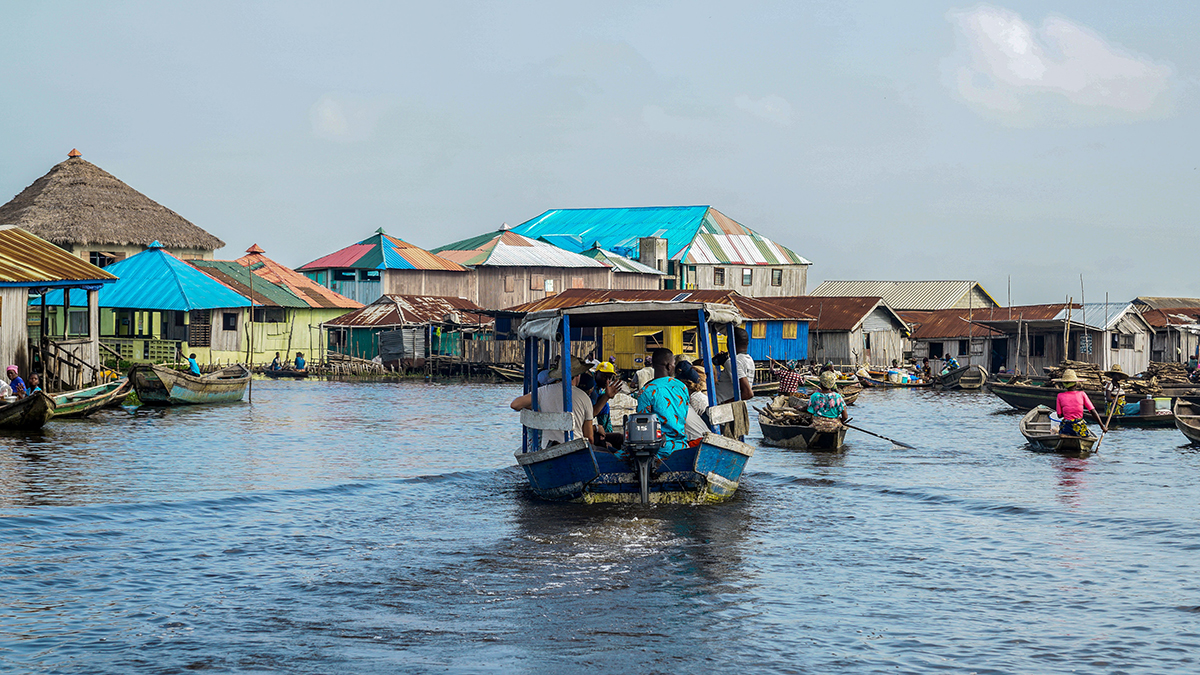Collective Action in West African coastal states: fighting corruption for sustainable and equitable development

This blog by Liza Young, Project Associate for Collective Action in the Basel Institute’s Private Sector team, draws on her newly published Policy Brief in English and French on how anti-corruption Collective Action can help West African coastal states achieve their development potential.
Africa is estimated to lose an unbelievable USD 88.6 billion (3.7% of Africa’s GDP) each year to illicit financial flows, of which corruption is a major component. Rooting out corruption is a collective effort, and the private sector has a major role to play in laying down the foundations for clean business environments and sustainable development.
That is why anti-corruption Collective Action has got so much to offer Africa, and in particular West African coastal states keen to maximise their clear economic potential.
As the spectrum of Collective Action initiatives is quite large, it allows for innovative measures where governments, companies and civil society organisations (CSOs) can join forces toward a common objective, despite their different perspectives.
This collaborative approach therefore provides a fertile ground for constructive dialogue between like-minded stakeholders, as well as an opportunity to understand the private sector’s language and reality.
The voice of civil society
CSOs have an important part to play in bringing Collective Action to the fight against corruption in West Africa. They must continue to initiate, facilitate and engage in Collective Action initiatives to help raise awareness and build bridges. Their presence can bring credibility, independent oversight and accountability to the initiatives.
Our Private Sector team’s latest Policy Brief is based on conversations held with CSOs based in Benin (Social Watch Benin), Ghana (Ghana Integrity Initiative), Ivory Coast (Ivorian Youth Leaders’ Network) and Togo (The Togolese National Agency for Consumers and the Environment). It aims to capture their experiences, challenges and outlook on what the future for Collective Action could hold in the region.
Despite their different backgrounds, they are united on one point: fighting corruption collectively by raising the voice of the private sector is an important step to pave the way for sustainable economic growth.
Lessons for practitioners
The representatives from the above CSOs shared some important insights for their counterparts seeking to develop multi-stakeholder initiatives to address corruption in their contexts.
Looking at the big picture, they agreed that anti-corruption Collective Action can play an important role in helping West African coastal states – and other states of course – maximise their economic potential. Bringing together stakeholders from the public and private sectors with civil society promotes good business along with business integrity.
Second, they reflected on the important role of civil society in bringing together stakeholders from other sectors to address shared challenges of business integrity and corruption. CSOs can help to trigger and facilitate Collective Action initiatives that fit the economic, political and social context of a given country.
All interviews mentioned the vital element of trust. To build trust between diverse stakeholders, they advised trying to find a common language and build understanding of the different perspectives of different stakeholders. Establishing platforms for dialogue can help build this trust, they said, but such platforms need a strong facilitator.
Last, many of the CSOs we spoke to live in contexts where anti-corruption laws, institutions and enforcement are not as strong as they could be. In some cases, Collective Action can help to fill gaps in legal frameworks and strengthen implementation. But where legal incentives to resist corruption are weak, CSOs will need to think hard about incentives for different stakeholders to engage. Fair competition, building alliances and shaping self-regulatory standards could all be incentives depending on the context.
Get involved and connect with like-minded organisations
Another major point of agreement was that working on anti-corruption can, at times, feel like pushing a stone up a hill. Going at it alone can be disheartening, especially in a context where corruption is still perceived as a way of doing business.
That is why connecting with other CSOs to exchange and learn from them is important to keep going. It can help build more robust and effective networks and initiatives, especially within a regional context where organisations might be facing similar challenges.
At a global level, the Basel Institute on Governance is working to build up a Collective Action community through a novel mentoring programme. The Programme is intended for civil society organisations that work with the private sector and other stakeholders in tackling corruption. It offers tailored advice, support and technical assistance from leading experts in anti-corruption compliance and Collective Action, for free.
Learn more
- Read the full Policy Brief in English and French. It is published by the Basel Institute's Private Sector team with the support of the Siemens Integrity Initiative.
- To find out what Collective Action initiatives might already exist in your country or region, visit the B20 Collective Action Hub initiatives database.
- A special thanks to all the civil society organisations that agreed to share their experiences in bringing a variety of stakeholders together to fight corruption and level the playing field: Mary Awelana Addah of the Ghana Integrity Initiative (GII); Fabrice A. Kodjo Ebeh of The Togolese National Agency for Consumers and the Environment (ANCE); Blanche Sonon of Social Watch Benin and Aman Baptiste Ado of the The Ivorian Youth Leaders’ Network (RIJLI).


